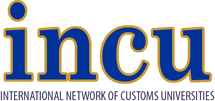At the invitation of the United Nations Environment Programme (UNEP) Regional Office for Asia and the Pacific (ROAP), the INCU took part in the Thematic Meeting of South Asia Network Ozone Officers, Customs Officers and Partners held from 17 to 19 December 2014 at the United Nations Conference Centre in Bangkok, Thailand organised by UNEP ROAP.
National ozone officers, representatives from Customs administrations and other ministries gathered to discuss regulation and enforcement issues relating to cross border movement of ozone depleting substances (ODS) including the phase out of ODS. Other agencies and international organisations that took part in the meeting in presence or via virtual platforms were the European Commission, the Multilateral Fund Secretariat, the United Nations Development Programme (UNDP), United Nations Industrial Development Organization (UNIDO), the World Bank, World Customs Organisation Regional Office for Capacity Building (WCO ROCB) Asia Pacific, Environmental Investigation Agency (EIA), International Labour Organization (ILO) and World Intellectual Property Organization (WIPO).
 INCU Head of Secretariat, Dr Mikhail Kashubsky delivered a presentation via Skype and introduced INCU to the audience, provided examples of academic research on the topic of regulation of cross-border movement of hazardous and environmentally-sensitive goods and substances by Customs administrations and other border agencies, discussed academic programs that cover topics such as ‘Green Customs’ and ‘Environmental Taxation’, and discussed how INCU and its Members and Affiliates may be able to assist the UNEP, Customs administrations and other relevant agencies through academic research, education and training.
INCU Head of Secretariat, Dr Mikhail Kashubsky delivered a presentation via Skype and introduced INCU to the audience, provided examples of academic research on the topic of regulation of cross-border movement of hazardous and environmentally-sensitive goods and substances by Customs administrations and other border agencies, discussed academic programs that cover topics such as ‘Green Customs’ and ‘Environmental Taxation’, and discussed how INCU and its Members and Affiliates may be able to assist the UNEP, Customs administrations and other relevant agencies through academic research, education and training.


The meeting resulted in customs officers agreeing to have an informal network amongst them for more effective cross-border enforcement. The meeting also provided an opportunity for UNEP to explore new partnership with the INCU, ILO and WIPO. These partnerships are hoped to assist countries in strengthen their capability to meet the Montreal Protocol obligations.
At this stage the following areas of potential cooperation between UNEP and INCU have been identified:
- Help raise the awareness about the role of enforcement officers in environmental protection as well as the on-going networking of ozone officers, customs officers and academia.
- Develop academic and training standards for Customs officers in collaboration with other organisations (e.g. UNEP, WCO, WTO)
- Provide information about INCU members and affiliated institutions that teach Environmental Taxation and other related topics
- Publish research papers on this topic in the World Customs Journal
- Collaboration between UNEP, INCU and WCO relating to establishment of a Professional Standards for Environmental Accreditation of Customs officers (possible WCO Accreditation Experts on environmental issues).
The INCU and UNEP-ROAR will be further discussing these issues soon and input from INCU Members and Affiliates will be sought in due course.
